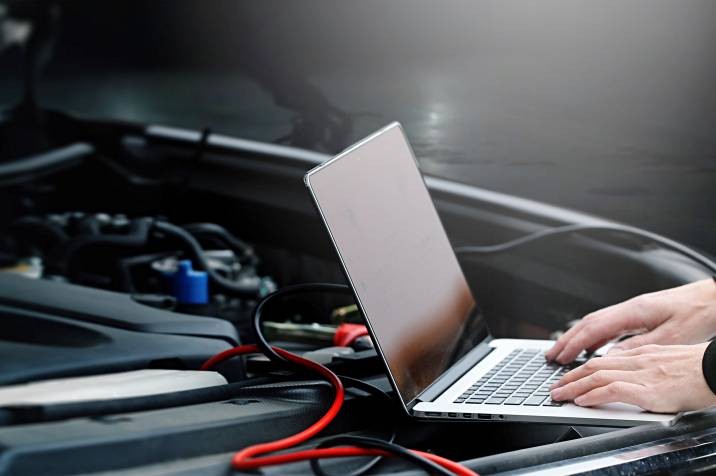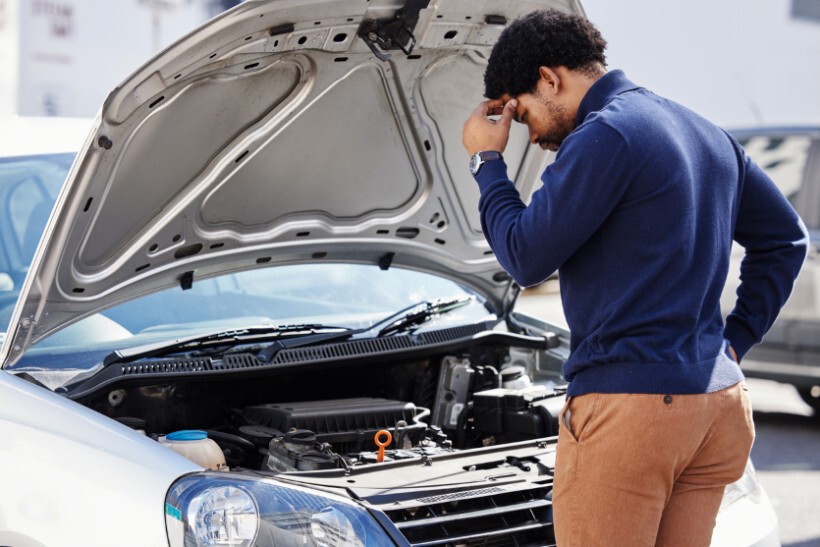Dealing with car troubles can be stressful, especially when that dreaded check engine light illuminates on your dashboard. Understanding what’s wrong with your vehicle often starts with a diagnostic test. But the burning question for most car owners is: how much are diagnostic tests for cars? The cost can vary, generally ranging from $20 to over $400, depending on several factors. This comprehensive guide will break down the costs associated with car diagnostic tests, what they entail, and why they are a crucial part of vehicle maintenance.
Understanding Car Diagnostic Tests
Modern cars are sophisticated machines equipped with onboard computer systems and numerous sensors. When something malfunctions, these sensors often trigger the check engine light. A car diagnostic test is a computerized analysis of your vehicle’s onboard computer. It efficiently identifies potential issues by reading error codes and assessing the performance of various systems. Think of it as a health check for your car’s brain, pinpointing areas that require attention and further inspection.
What’s Included in a Comprehensive Car Diagnostic Test?
A skilled mechanic utilizes advanced computer diagnostics to thoroughly evaluate a car’s condition under the hood.
A thorough car diagnostic test goes beyond just reading the check engine light codes. A mechanic should provide a detailed report analyzing critical vehicle systems, including:
- Engine Performance: Evaluating engine efficiency, identifying misfires, and checking for mechanical issues.
- Electrical System: Assessing battery health, alternator function, and identifying problems within the car’s electrical circuits.
- Sensors: Checking the functionality of various sensors throughout the vehicle that monitor everything from temperature to pressure.
- Transmission: Analyzing transmission fluid levels, shift patterns, and looking for signs of internal problems.
- Braking System: Evaluating the anti-lock braking system (ABS), brake pad wear sensors, and overall brake system health.
- Exhaust System: Checking for emissions issues, catalytic converter efficiency, and leaks within the exhaust system.
- Fuel Injection System: Assessing fuel pressure, injector performance, and identifying potential fuel delivery problems.
- Throttle and Ignition: Analyzing throttle response, ignition timing, and spark plug performance.
- Air Conditioning and Heating: Checking the functionality of the climate control system, refrigerant levels, and compressor performance.
- Airbags and Safety Systems: Ensuring the proper operation of airbags, seatbelt pretensioners, and other safety features.
It’s important to note that while a diagnostic test helps identify problem areas, it doesn’t always pinpoint the exact cause of the issue. It serves as a crucial first step, guiding mechanics to the source of the problem and preventing potential further damage by enabling targeted manual inspections.
Car Diagnostic Test Costs: Price Breakdown
The cost of a car diagnostic test isn’t fixed and can fluctuate based on the service provider and the depth of the diagnostic service. Here’s a general cost estimate to give you an idea of what to expect:
| Type of Car Diagnostic Test | Estimated Cost Range | Description |
|---|---|---|
| Basic Diagnostic Scan | $20 – $65 | Typically reads basic OBD-II codes, often offered at auto parts stores. |
| Mid-Range Diagnostic Service | $65 – $160 | More in-depth scan at independent garages, includes system-specific code reading. |
| Comprehensive Diagnostic Test | $160 – $400+ | Dealer or specialized mechanic, includes advanced system analysis and pinpoint testing. |


These figures are estimates and can vary. Some mechanics might charge a flat fee for diagnostics, while others may bill hourly for labor, especially if the diagnostic process is complex or time-consuming. Luxury vehicles or high-performance cars often incur higher diagnostic fees due to the specialized equipment and expertise required to service them.
Factors Influencing the Price of Car Diagnostic Tests
Several key factors can affect how much you’ll pay for a car diagnostic test:
- Location: Geographical location plays a significant role. Areas with higher costs of living or less competition among auto repair shops might see higher diagnostic prices. Conversely, densely populated areas with many service providers may offer more competitive rates.
- Mechanic’s Expertise and Shop Type: The experience level of the mechanic and the type of repair shop (dealership, independent garage, chain store) will influence pricing. Dealerships often have higher overhead costs and specialized technicians, which can translate to higher diagnostic fees. Highly experienced mechanics with advanced diagnostic equipment may also charge more for their expertise.
- Vehicle Make and Model: Diagnosing certain makes and models, especially luxury or high-performance vehicles, can be more complex and require specialized diagnostic tools and software. This specialized service often comes with a higher price tag. Conversely, common, mass-market vehicles may have more accessible diagnostic procedures, potentially leading to lower costs.
- Diagnostic Equipment Used: Basic code readers are less expensive and less capable than advanced diagnostic scan tools used by professional mechanics. Shops investing in sophisticated equipment to perform thorough diagnostics may need to charge accordingly to recoup their investment.
- Time and Labor: If the diagnostic process is straightforward, the cost will likely be lower. However, if the issue is complex and requires extensive troubleshooting, the mechanic may need to spend more time, leading to increased labor charges.
When is a Car Diagnostic Test Necessary?
A concerned car owner carefully examines his engine bay, recognizing the need for a diagnostic assessment due to performance issues.
Knowing when to get a diagnostic test can save you money and prevent further vehicle damage. Consider a diagnostic test in these situations:
- Check Engine Light is On: This is the most obvious indicator. The check engine light signals that your car’s computer has detected an issue that needs attention. A diagnostic test can decipher the error codes and provide insights into the problem.
- Purchasing a Used Car: Before buying a used vehicle, a pre-purchase inspection including a diagnostic test is highly recommended. It can reveal hidden problems that might not be apparent during a visual inspection and save you from costly repairs down the line.
- Preventive Maintenance Schedule: Incorporating diagnostic tests into your regular maintenance schedule, even without apparent issues, can be beneficial. Preventive diagnostics can identify minor problems early before they escalate into major, expensive repairs.
- Experiencing Performance Issues: If you notice unusual symptoms like decreased fuel efficiency, rough idling, strange noises, or changes in handling, a diagnostic test can help identify the underlying cause, even if the check engine light isn’t illuminated.
Finding Cost-Effective Car Diagnostic Services
While it’s essential to get a professional diagnostic test when needed, you can be proactive in managing costs:
- Compare Quotes: Call several local mechanics or auto repair shops to inquire about their diagnostic service fees. Getting multiple quotes will help you understand the average cost in your area and potentially find a better deal.
- Ask for a Detailed Estimate: Before authorizing any diagnostic work, ask for a clear estimate of the total cost, including labor and any potential additional charges.
- Consider Independent Garages: Independent mechanics can often offer more competitive pricing than dealerships while still providing quality diagnostic services.
- Inquire about Basic Scans: For simple check engine light issues, a basic diagnostic scan at a lower cost might be sufficient to identify the problem. Discuss your needs with the mechanic to determine the most appropriate and cost-effective level of diagnostic service.
- Utilize Online Platforms: Online platforms like Airtasker can connect you with local mechanics who offer diagnostic services. You can compare quotes and reviews to find a reliable and affordable option in your area.
In Conclusion
Understanding how much car diagnostic tests cost and what factors influence pricing empowers you to make informed decisions about your vehicle maintenance. While the cost can vary, investing in a diagnostic test is often a smart move. It provides valuable insights into your car’s health, helps identify problems early, and ultimately can save you money by preventing more extensive and expensive repairs in the future. Don’t let the check engine light stress you out – get a diagnostic test and take the first step towards resolving your car troubles effectively.
